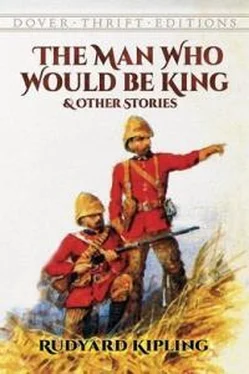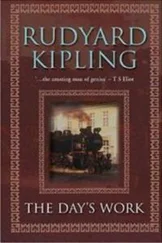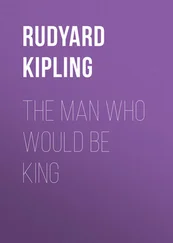Джозеф Киплинг - The Man Who Would Be King
Здесь есть возможность читать онлайн «Джозеф Киплинг - The Man Who Would Be King» весь текст электронной книги совершенно бесплатно (целиком полную версию без сокращений). В некоторых случаях можно слушать аудио, скачать через торрент в формате fb2 и присутствует краткое содержание. Год выпуска: 2014, Издательство: epubBooks Classics, Жанр: Классическая проза, на английском языке. Описание произведения, (предисловие) а так же отзывы посетителей доступны на портале библиотеки ЛибКат.
- Название:The Man Who Would Be King
- Автор:
- Издательство:epubBooks Classics
- Жанр:
- Год:2014
- ISBN:нет данных
- Рейтинг книги:5 / 5. Голосов: 1
-
Избранное:Добавить в избранное
- Отзывы:
-
Ваша оценка:
- 100
- 1
- 2
- 3
- 4
- 5
The Man Who Would Be King: краткое содержание, описание и аннотация
Предлагаем к чтению аннотацию, описание, краткое содержание или предисловие (зависит от того, что написал сам автор книги «The Man Who Would Be King»). Если вы не нашли необходимую информацию о книге — напишите в комментариях, мы постараемся отыскать её.
The Man Who Would Be King — читать онлайн бесплатно полную книгу (весь текст) целиком
Ниже представлен текст книги, разбитый по страницам. Система сохранения места последней прочитанной страницы, позволяет с удобством читать онлайн бесплатно книгу «The Man Who Would Be King», без необходимости каждый раз заново искать на чём Вы остановились. Поставьте закладку, и сможете в любой момент перейти на страницу, на которой закончили чтение.
Интервал:
Закладка:
The Man Who Would Be King
Rudyard Kipling
"Brother to a Prince and fellow to a beggar if he be found worthy."
The Law, as quoted, lays down a fair conduct of life, and one not easy to follow. I have been fellow to a beggar again and again under circumstances which prevented either of us finding out whether the other was worthy. I have still to be brother to a Prince, though I once came near to kinship with what might have been a veritable King and was promised the reversion of a Kingdom —army, law–courts, revenue and policy all complete. But, to–day, I greatly fear that my King is dead, and if I want a crown I must go and hunt it for myself.
The beginning of everything was in a railway train upon the road to Mhow from Ajmir. There had been a deficit in the Budget, which necessitated travelling, not Second–class, which is only half as dear as First–class, but by Intermediate, which is very awful indeed. There are no cushions in the Intermediate class, and the population are either Intermediate, which is Eurasian, or native, which for a long night journey is nasty; or Loafer, which is amusing though intoxicated. Intermediates do not patronize refreshment–rooms. They carry their food in bundles and pots, and buy sweets from the native sweetmeat–sellers, and drink the roadside water. That is why in the hot weather Intermediates are taken out of the carriages dead, and in all weathers are most properly looked down upon.
My particular Intermediate happened to be empty till I reached Nasirabad, when a huge gentleman in shirt–sleeves entered, and, following the custom of Intermediates, passed the time of day. He was a wanderer and a vagabond like myself, but with an educated taste for whiskey. He told tales of things he had seen and done, of out–of–the–way corners of the Empire into which he had penetrated, and of adventures in which he risked his life for a few days’ food. "If India was filled with men like you and me, not knowing more than the crows where they’d get their next day’s rations, it isn’t seventy millions of revenue the land would be paying—it’s seven hundred million," said he; and as I looked at his mouth and chin I was disposed to agree with him. We talked politics—the politics of Loaferdom that sees things from the underside where the lath and plaster is not smoothed off—and we talked postal arrangements because my friend wanted to send a telegram back from the next station to Ajmir, which is the turning–off place from the Bombay to the Mhow line as you travel westward. My friend had no money beyond eight annas which he wanted for dinner, and I had no money at all, owing to the hitch in the Budget before mentioned. Further, I was going into a wilderness where, though I should resume touch with the Treasury, there were no telegraph offices. I was, therefore, unable to help him in any way.
"We might threaten a Station–master, and make him send a wire on tick," said my friend, "but that’d mean inquiries for you and for me, and I’ve got my hands full these days. Did you say you are travelling back along this line within any days?"
"Within ten," I said.
"Can’t you make it eight?" said he. "Mine is rather urgent business."
"I can send your telegram within ten days if that will serve you," I said.
"I couldn’t trust the wire to fetch him now I think of it. It’s this way. He leaves Delhi on the 23d for Bombay. That means he’ll be running through Ajmir about the night of the 23d."
"But I’m going into the Indian Desert," I explained.
"Well and good," said he. "You’ll be changing at Marwar Junction to get into Jodhpore territory—you must do that—and he’ll be coming through Marwar Junction in the early morning of the 24th by the Bombay Mail. Can you be at Marwar Junction on that time? ’Twon’t be inconveniencing you because I know that there’s precious few pickings to be got out of these Central India States—even though you pretend to be correspondent of the Backwoodsman."
"Have you ever tried that trick?" I asked.
"Again and again, but the Residents find you out, and then you get escorted to the Border before you’ve time to get your knife into them. But about my friend here. I must give him a word o’ mouth to tell him what’s come to me or else he won’t know where to go. I would take it more than kind of you if you was to come out of Central India in time to catch him at Marwar Junction, and say to him:—‘He has gone South for the week.’ He’ll know what that means. He’s a big man with a red beard, and a great swell he is. You’ll find him sleeping like a gentleman with all his luggage round him in a second–class compartment. But don’t you be afraid. Slip down the window, and say:—‘He has gone South for the week,’ and he’ll tumble. It’s only cutting your time of stay in those parts by two days. I ask you as a stranger—going to the West," he said with emphasis.
"Where have you come from?" said I.
"From the East," said he, "and I am hoping that you will give him the message on the Square—for the sake of my Mother as well as your own."
Englishmen are not usually softened by appeals to the memory of their mothers, but for certain reasons, which will be fully apparent, I saw fit to agree.
"It’s more than a little matter," said he, "and that’s why I ask you to do it—and now I know that I can depend on you doing it. A second–class carriage at Marwar Junction, and a red–haired man asleep in it. You’ll be sure to remember. I get out at the next station, and I must hold on there till he comes or sends me what I want."
"I’ll give the message if I catch him," I said, "and for the sake of your Mother as well as mine I’ll give you a word of advice. Don’t try to run the Central India States just now as the correspondent of the Backwoodsman. There’s a real one knocking about here, and it might lead to trouble."
"Thank you," said he simply, "and when will the swine be gone? I can’t starve because he’s ruining my work. I wanted to get hold of the Degumber Rajah down here about his father’s widow, and give him a jump."
"What did he do to his father’s widow, then?"
"Filled her up with red pepper and slippered her to death as she hung from a beam. I found that out myself and I’m the only man that would dare going into the State to get hush–money for it. They’ll try to poison me, same as they did in Chortumna when I went on the loot there. But you’ll give the man at Marwar Junction my message?"
He got out at a little roadside station, and I reflected. I had heard, more than once, of men personating correspondents of newspapers and bleeding small Native States with threats of exposure, but I had never met any of the caste before. They lead a hard life, and generally die with great suddenness. The Native States have a wholesome horror of English newspapers, which may throw light on their peculiar methods of government, and do their best to choke correspondents with champagne, or drive them out of their mind with four–in–hand barouches. They do not understand that nobody cares a straw for the internal administration of Native States so long as oppression and crime are kept within decent limits, and the ruler is not drugged, drunk, or diseased from one end of the year to the other. Native States were created by Providence in order to supply picturesque scenery, tigers and tall–writing. They are the dark places of the earth, full of unimaginable cruelty, touching the Railway and the Telegraph on one side, and, on the other, the days of Harun–al–Raschid. When I left the train I did business with divers Kings, and in eight days passed through many changes of life. Sometimes I wore dress–clothes and consorted with Princes and Politicals, drinking from crystal and eating from silver. Sometimes I lay out upon the ground and devoured what I could get, from a plate made of a flapjack, and drank the running water, and slept under the same rug as my servant. It was all in a day’s work.
Читать дальшеИнтервал:
Закладка:
Похожие книги на «The Man Who Would Be King»
Представляем Вашему вниманию похожие книги на «The Man Who Would Be King» списком для выбора. Мы отобрали схожую по названию и смыслу литературу в надежде предоставить читателям больше вариантов отыскать новые, интересные, ещё непрочитанные произведения.
Обсуждение, отзывы о книге «The Man Who Would Be King» и просто собственные мнения читателей. Оставьте ваши комментарии, напишите, что Вы думаете о произведении, его смысле или главных героях. Укажите что конкретно понравилось, а что нет, и почему Вы так считаете.












